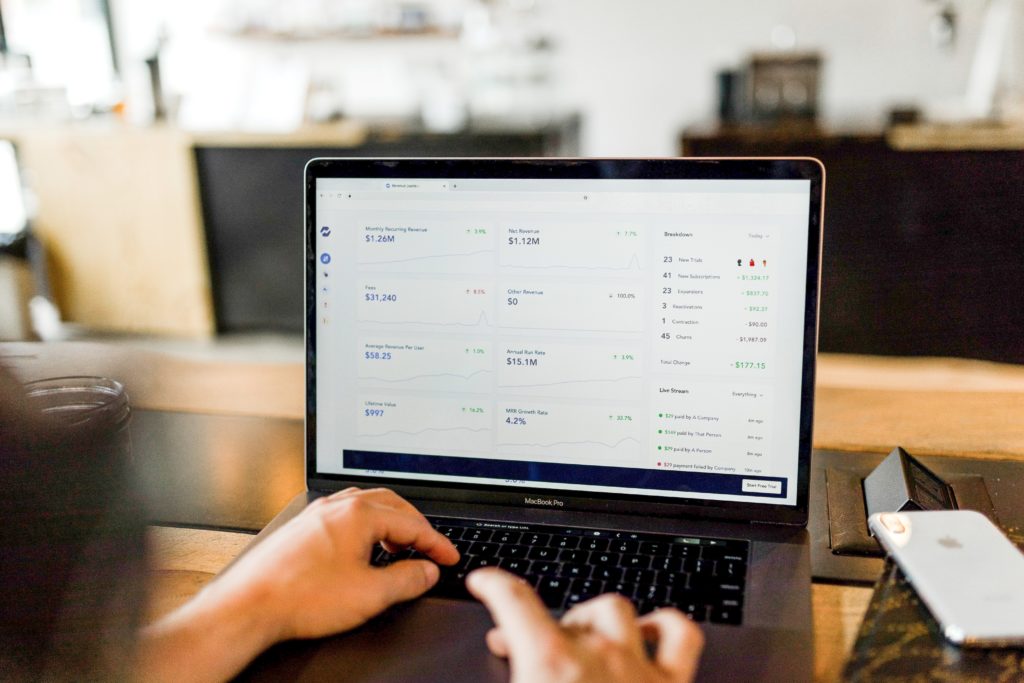Post Lockdown Digital Strategy Considerations for Hospitality and Retail Brands
With hope on the horizon for a return to ‘normalcy’, brands operating in industries hit particularly hard by the pandemic are naturally considering how they can adapt their digital strategy to cater to changing consumer behaviours, and help fast track their recovery.
As an agency specialising in digital strategy and support for luxury hospitality and retail brands, we have pulled together advice from our in-house specialists on what such brands may consider as part of their digital activity as restrictions begin to ease.

Arm your website with robust analytics and tracking that helps you understand your customers’ behaviour
If there has been one constant throughout the pandemic, it is that nobody can truly predict how quickly circumstances may change. One sure-fire way to make sure you can react well to the resulting behavioural shifts is to equip your website with events tracking that shed light on how customers are interacting with your digital platforms and content.
This can include the set up of events tracking that feeds data into Google Analytics, and the configuration of custom Data Studio reports that show a snapshot of key metrics such as conversion and bounce rates, page dwell times, drop off, etc. It is also important to have full visibility on the performance of your digital marketing channels (Organic search, paid media, social etc) in order to understand what type of content is doing the best job of engaging your audience and adapt your strategy accordingly.
Make sure your digital content creates trust with your customers and reassures them that you prioritise their wellbeing
People’s attitudes towards health and wellbeing have been irreversibly changed, and your approach to customer safety is going to be a key factor for customers when deciding whether to engage with your product or services.
Make sure that your digital communications work hard to reassure your customers that you have their best interests at heart, as they begin to be able to interact with your brand and products in a physical sense. This may include a dedicated section on your website outlining the steps you take to ensure your customers’ safety, with supporting messaging throughout your social media and email marketing. Regardless of approach, businesses must understand that attitudes have been permanently changed, and your ability to sensitively communicate how you are catering to this change will be vital for success.
Make sure your business and digital platforms are equipped to react quickly to changing circumstances
Agility has been key for brands in the hospitality and retail sector over the last 12 months, and will continue to be just as important moving forward. Demand for products and services is very volatile and dependent on unpredictable factors such as infection curves, government restrictions, etc.
This means that businesses need to be able to navigate both periods of drought and periods of increased traffic and conversion equally well. On one side that could mean the creative reshaping of product offerings, such as signature menu kits to deliver and prepare at home for restaurants, to the effective planning of product stocks to accommodate for increase in purchases. Each case will require adaptation to your tech stack as well as how you communicate with customers.
Be prepared for the increase in traffic, and use this as an opportunity to cross-sell
As lockdown restrictions begin to ease, we can expect to see an increase in search volumes and website traffic, particularly in the case of hospitality brands reopening their doors and inviting table bookings.
In the run up to this, we recommend first making sure that your website’s booking engine is working seamlessly and there are no UX issues that may give your users reason to click away before completing their bookings and check out your competitors. This may be facilitated by insights from historical data combined with some good old-fashioned cross-browser and cross-device QA testing.
This increased traffic is also going to be an opportunity to make your customers aware of your wider brand and product offering, for example any online alternatives you have introduced during the lockdown months and may be your current lifelines. Think about how your new online options can feed in with your in-person experience, and how the two may work in each other’s favour. For example, restaurants may look to offer discounts to their home delivery or meal kits for customers who have dined in person.

Prepare for things not to go fully ‘back to normal’
Even with lockdown restrictions beginning to lift, it’s important to recognise that attitudes and behaviours have been irreversibly changed, and the dramatic shift towards online shopping is here to stay.
With this in mind, it’s important to continue exploring ways in which you can enhance your digital shopping experience and make sure your brand stands out amongst competitors. This could include the optimisation of your existing support systems to be more intuitive and responsive in asking important questions that would normally be answered in-store, or the introduction of new technology that replicates the in-store experience, such as an AR fitting room.
Regardless of how circumstances change in the second half of this year, expectations have it is important to be conscious of this and have a clear plan in place for the continued optimisation of your digital experiences.
To discuss an upcoming digital project, please get in touch via our contact form.




